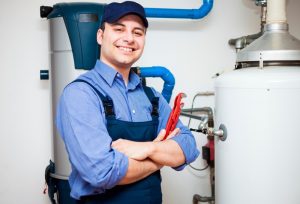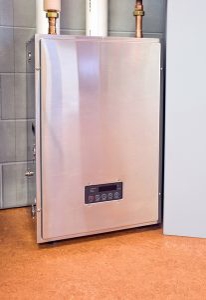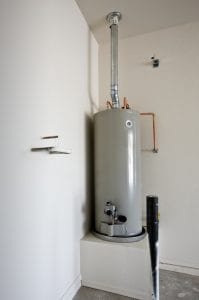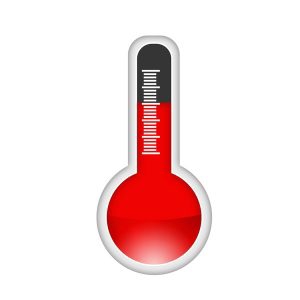This water heater, too, shall pass!
There’s no such thing as “the only water heater you’ll ever need.” Any appliance that does as much work as a hot water heater—and the one in your house probably runs every day, four seasons a year—accumulates large amounts of wear and tear. Proper maintenance can lessen how fast a water heater runs down, but the day will come when an owner must make the decision to stop having it professionally repaired and instead have it professionally replaced.
If you’re asking the big question in the heading, we’d like to help. The best way to get our help is to call our plumbers for a consultation and inspection. Before you do that, we can provide you with some guidelines to help you think about whether you ought to replace that water heater.
Age is the first consideration
Water heaters can sometimes last more than 20 years, and tankless units tend to fall on the longer service lifespan spectrum. Once a water heater is more than 15 years old, it needs closer observation for signs of it wearing down, losing efficiency, requiring more repairs, etc. We strongly recommend replacing any water heater in service for more than two decades.
Corrosion? Bad news!
Water heaters are designed to resist corrosion for many years: they have glass lined interiors and a sacrificial anode rod that draws corrosion away from the rest of the system. Age, however, can allow the gnawing of corrosion (and the word corrosion is derived from the Latin word “to gnaw”) to start taking bites out of a water heater. When you see corrosion on your water heater, it almost always means it needs replacement. (Watch out for discoloration in your hot water, since it points toward a tank that’s corroded out from the inside.)
The water heater’s performance has been dropping
Is the water heater simply not doing the job it used to? If people in your home are actually eager to get up earlier and earlier so they can be the first people into the showers and not get stuck with a lukewarm shower, you may have a dying water heater. Repairs can only do so much, and when “so much” is “not much at all,” it’s replacement time.
Leaks, leaks, leaks
The only place on a water heater where you should see leaks are from the pressure relief valve. This valve releases a small amount of water to regulate pressure in the tank of a storage water heater. Water appearing anywhere else around the system is a repair need. If those leaks are common, the water heater may be in a final decay.
For a Columbia, MD, plumber with the experience necessary to determine the best step for your old water heater, you only have to call us. We work with tank, tankless, and heat pump water heaters, and can handle any type of repair or replacement.
Mallick Plumbing & Heating is the service contractor of choice for Maryland, Virginia, and the District of Columbia. Speak to our experts today for water heater replacement advice.





